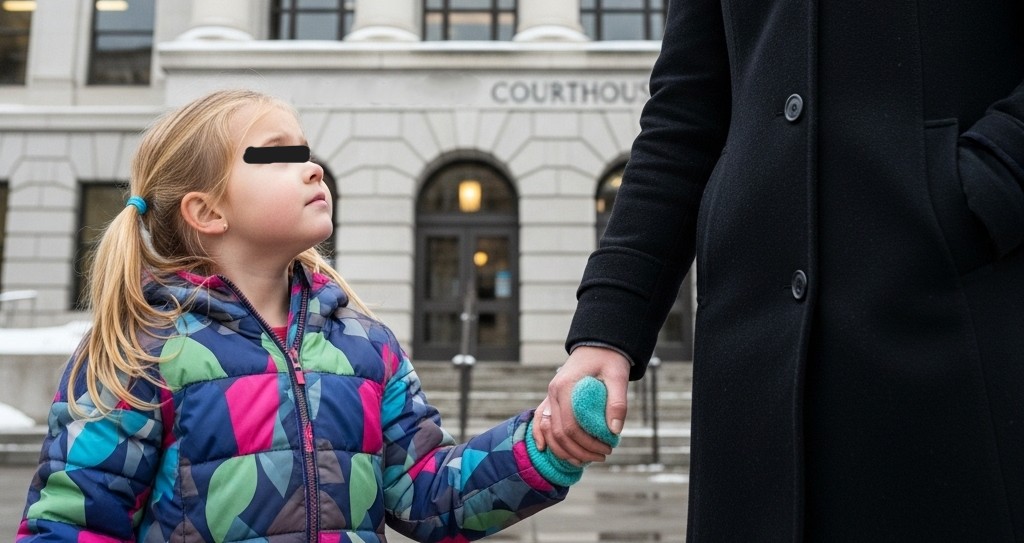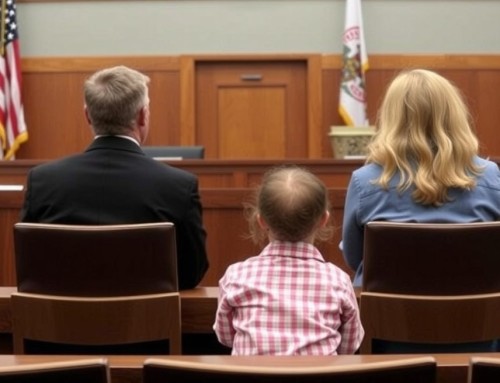Common Mistakes in Idaho Child Custody Cases
Child custody cases are among the most emotionally charged and high-stakes legal proceedings families face. Unfortunately, the stress and emotion involved often lead parents to make critical mistakes that can harm their chances of achieving favorable custody arrangements. Brown Family Law is proud to serve Idaho families with compassionate divorce and family law services designed to help you protect what matters most – your children and your parental rights.
Understanding common pitfalls in Idaho custody cases can help you avoid costly errors and position yourself for the best possible outcome. These mistakes can have long-lasting consequences for your relationship with your children and your family’s future, making it crucial to approach custody proceedings with careful planning and professional guidance.
Putting Your Emotions Before Your Children’s Best Interests
Letting Anger Drive Decisions is one of the most damaging mistakes parents make in custody cases. While it’s natural to feel hurt, angry, or betrayed during divorce, allowing these emotions to guide your actions can seriously harm your case and your children’s well-being.
Fighting Over Principle Rather Than Practicality often leads to prolonged, expensive litigation that serves no one’s interests. Parents sometimes become so focused on “winning” or proving they’re right that they lose sight of what arrangements would actually work best for their children.
Using Children as Weapons against the other parent is both harmful to the children and counterproductive in court. Idaho courts strongly favor parents who encourage their children’s relationships with both parents, and evidence of parental alienation can seriously damage your custody case.
Refusing to Compromise on reasonable requests or arrangements signals to the court that you may not be able to co-parent effectively. Courts prefer parents who demonstrate flexibility and willingness to work together for their children’s benefit.
Inadequate Preparation and Documentation
Failing to Gather Evidence of your parenting involvement and capabilities is a critical mistake. Courts need concrete evidence of your relationship with your children, your parenting skills, and your ability to provide a stable environment.
Poor Record Keeping can hurt your case when you can’t document important events, communications, or the other parent’s behavior. Detailed records of parenting time, missed visits, communications, and significant events can be crucial evidence in custody proceedings.
Ignoring Financial Documentation related to child support and your ability to provide for your children can weaken your position. Courts consider each parent’s financial stability and ability to meet their children’s needs.
Inadequate Witness Preparation can result in testimony that doesn’t effectively support your case. Teachers, coaches, family members, and other witnesses need to understand what information is relevant and helpful to your custody case.
Violating Court Orders or Agreements
Withholding Parenting Time from the other parent, even when you believe you have good reasons, can seriously damage your custody case. Courts view violations of parenting time orders very seriously and may see such behavior as evidence that you cannot follow court orders.
Failing to Follow Temporary Orders during your case sends a negative message to the court about your respect for judicial authority and your ability to comply with custody arrangements.
Making Unilateral Decisions about major aspects of your children’s lives when you’re supposed to consult with the other parent can be seen as evidence that you cannot co-parent effectively.
Relocating Without Permission or proper notice can result in serious legal consequences and may be viewed as an attempt to interfere with the other parent’s relationship with the children.
Poor Communication and Social Media Mistakes
Inappropriate Communication with the other parent, including hostile, threatening, or disrespectful messages, can be used as evidence against you in court. All communications should be respectful and focused on the children’s needs.
Social Media Indiscretions can seriously damage your custody case. Photos showing irresponsible behavior, negative posts about the other parent, or evidence of poor judgment can all be used against you in court proceedings.
Discussing the Case with Children puts them in an inappropriate position and can be harmful to their emotional well-being. Children should never be asked to take sides or provide information about the other parent’s household.
Involving Children in Adult Conflicts by arguing in front of them, asking them to carry messages to the other parent, or making them feel responsible for the custody dispute can harm both your case and your children’s emotional health.
Neglecting Your Children’s Actual Needs
Focusing on Your Rights Instead of Children’s Needs can make you appear selfish and unfit for custody. Courts are primarily concerned with what arrangements will best serve the children’s interests, not what parents want or feel they deserve.
Ignoring Children’s Preferences when they’re old enough to express meaningful opinions can hurt your case. While children’s preferences aren’t controlling, courts do consider them, and dismissing your children’s feelings can be problematic.
Failing to Maintain Stability in your children’s lives during the custody process can be seen as evidence that you cannot provide the consistency children need. This includes maintaining routines, school attendance, and extracurricular activities.
Not Addressing Children’s Emotional Needs during the difficult custody process can harm both your children and your case. Courts favor parents who recognize and address the emotional impact of divorce and custody proceedings on children.
Financial and Practical Mistakes
Inadequate Housing Arrangements can seriously impact your custody case. Courts want to ensure that children have appropriate, stable housing with adequate space and safety measures.
Ignoring Child Support Obligations or failing to provide financial support for your children can be used as evidence that you’re not committed to their welfare. Even if formal support orders aren’t in place, providing for your children’s needs is important.
Poor Financial Planning for the costs of custody litigation and ongoing child-rearing expenses can leave you unable to effectively pursue your case or provide for your children’s needs.
Failing to Consider Practical Logistics such as work schedules, school locations, and transportation when proposing custody arrangements can result in unworkable plans that courts will reject.
Legal and Procedural Errors
Representing Yourself in Complex Cases can be a costly mistake. While self-representation is legally allowed, custody cases involve complex legal standards and procedures that are difficult to navigate without experience.
Missing Deadlines for filing documents, responding to motions, or completing required actions can result in default judgments or other adverse consequences that are difficult to reverse.
Inadequate Legal Strategy often results from not understanding Idaho custody law, court procedures, or the specific judge’s preferences and tendencies.
Failing to Prepare for Court Appearances can result in poor testimony, missed opportunities to present important evidence, or unfavorable impressions on the judge.
Relationship and Co-Parenting Mistakes
Introducing New Romantic Partners Too Quickly or inappropriately can raise concerns about your judgment and your children’s emotional well-being. Courts prefer parents who prioritize their children’s adjustment over new relationships.
Failing to Encourage the Other Parent’s Relationship with the children can be seen as evidence of parental alienation. Idaho courts strongly favor parents who support their children’s relationships with both parents.
Not Establishing Appropriate Boundaries with extended family members, new partners, or others who may interfere with custody arrangements can create complications and conflicts.
Poor Conflict Resolution Skills can make co-parenting difficult and may influence the court’s assessment of your ability to work with the other parent in the children’s best interests.
How to Avoid These Mistakes
Work with Experienced Legal Counsel who understands Idaho custody law and can guide you through the process while helping you avoid common pitfalls. Professional representation is particularly important in contested custody cases.
Focus on Your Children’s Best Interests in all decisions and communications. Ask yourself whether your actions and choices serve your children’s needs rather than your own emotions or desires.
Document Everything relevant to your parenting and the other parent’s behavior. Keep detailed records of parenting time, communications, significant events, and your children’s needs and preferences.
Maintain Appropriate Behavior at all times, including in your communications, social media use, and interactions with your children and the other parent. Remember that everything you do may be scrutinized in court.
Follow All Court Orders precisely and completely. If you have concerns about court orders or need modifications, work with your divorce attorney to address them through proper legal channels.
Prioritize Your Children’s Emotional Well-Being by protecting them from adult conflicts, providing stability during the custody process, and ensuring they receive any necessary counseling or support.
The Importance of Professional Guidance
Custody cases involve complex legal standards, emotional challenges, and high stakes that make professional guidance essential. Experienced family law attorneys understand how to navigate Idaho’s custody laws, avoid common mistakes, and position your case for the best possible outcome.
The consequences of mistakes in custody cases can last for years and significantly impact your relationship with your children. Investing in quality legal representation and following professional guidance can help protect your parental rights and serve your children’s best interests.
Conclusion
Avoiding common mistakes in Idaho custody cases requires careful planning, emotional discipline, and professional guidance. The stakes are too high to risk making errors that could harm your relationship with your children or result in unfavorable custody arrangements.
At Brown Family Law, we understand the challenges parents face in custody proceedings and the importance of protecting your parental rights while serving your children’s best interests. Our experienced team can help you navigate the custody process while avoiding the pitfalls that often derail other cases.
Don’t let avoidable mistakes jeopardize your custody case and your relationship with your children. Call Brown Family Law today to schedule your divorce consultation and learn how we can help you achieve the best possible outcome for your family.








